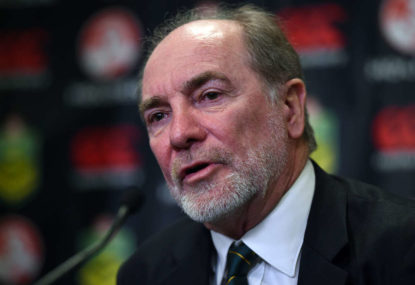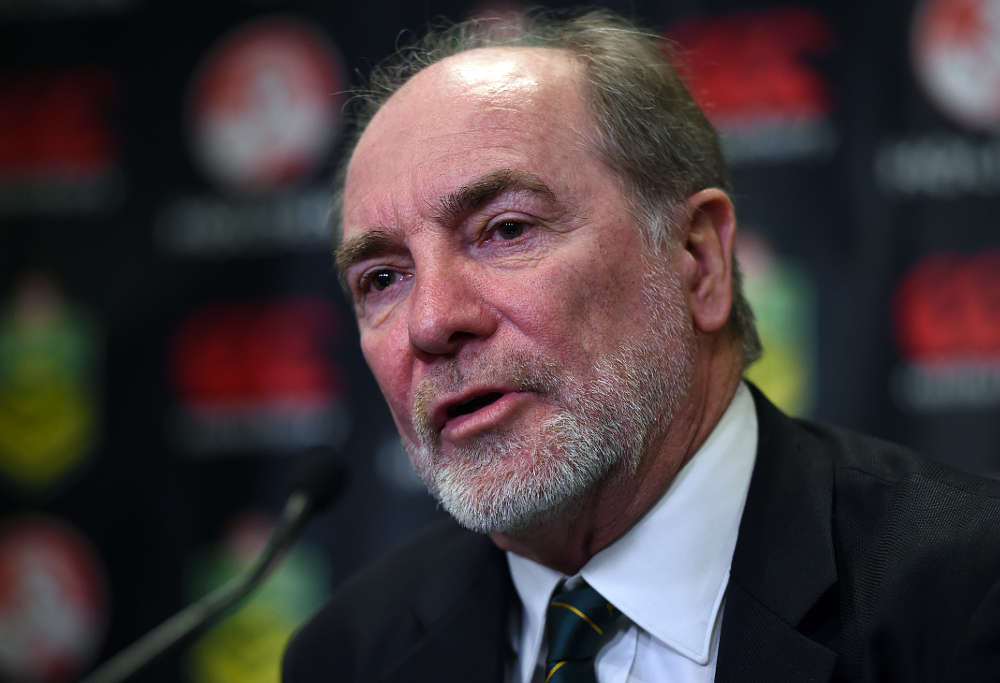Paul Jung
new author
Roar Rookie

No sport in Australia can continually be so self-defeating and so self-wounding from such an aggressively insular mindset as rugby league.
After the inter-club and interstate fights, brawls, and stand offs of the semi-professional ARL years, the game then opened the back door for the devil, inviting in the crippling News Ltd power play of Super League.
Finally, unexpectedly, after 13 years of News Ltd neglect and pillaging, the media giant bowed to public pressure and gave the game back it’s freedom and independence. Fans could now rejoice. The game’s long road to reaching its potential had begun.
Or not.
In true rugby league character, the promise of significant growth across all aspects of the game through a proven robust and successful leadership model could not kill the warring, the mistrust, and the selfish and short sighted views of the power brokers in the state bodies and club land.
Some state and club bosses want the NRL Commission Chairman John Grant sacked because they demand more money for themselves, and not to be spent as he has arranged on grass roots and future growth of the game.

Now the states and clubs are arguing they should have direct representation on the Independent Commission. Further, they are arguing with each other over how they should have direct representation.
In essence, they are arguing over an argument?
To state the bleeding obvious, how is a Commission independent if self-interested state bodies and clubs are directly influencing decision making?
Fans pull their hair out as long term state and club power brokers cannot, or simply will not, accept that the whole game can only benefit if it has truly independent leadership.
And to see how true independence can be incredibly effective, league does not need to look very far. South in fact.
Collingwood, the biggest club of any code in the country, allowed the AFL Commission to give financial leg ups to two inter-state teams, even though in suffered consecutive grand final loses to one of those teams, because the Commission said it was for the betterment of the game.
Admittedly, the Lions have since lost those privileges and are now left to rot on a vine.
However the Swans, in the country’s biggest economic base, still enjoy those leg ups to this day, as do the expansion teams, the Suns and GWS.
The suggestion any NRL club should receive even a fraction of this advantage would likely send NRL club bosses into a psychopathic rage.
If the passionately biased, combative, and opinionated Eddie McGuire can grasp the importance of independent governance, why can’t Nick Politis and Phil Gould?
League is gospel in NSW and Queensland , where more than half the Australian population live, and is the number one rating sport on free and pay TV, but in a fight of governance, the AFL wins by knock out in the first round.
On any economic barometer, the AFL is miles ahead, all due to it enjoying independent leadership for decades.
There have of course been the expected teething problems for the NRL Commission. An underwhelming TV rights deal, (think an enraged Rupert Murdoch and a subsequent AFL economic free kick), lack of vision and clarity on expansion, and no concrete dollar number for club funding and the salary cap only weeks from a season kick off are all worthy of criticism.
But a five-year broadcast deal of $1.9 billion is a brave new world compared to the previous reluctant $500 million News Ltd hand out.
Rugby league has a long and prosperous future in its own hands, but for this to ever eventuate it must bury the wars of the past, take off the blinkers, and allow the benefits of a free and independent Commission to benefit all.